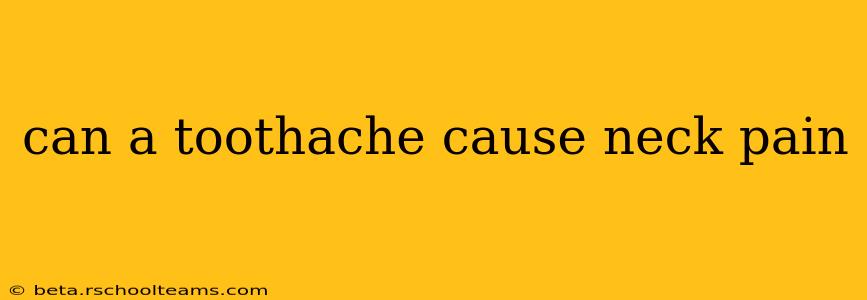A throbbing toothache is miserable enough, but could it also be the culprit behind that nagging neck pain? The answer, surprisingly, is often yes. While seemingly unrelated, your teeth and neck are interconnected through a complex network of muscles, nerves, and even the structure of your skull. Understanding this relationship can be key to getting the right treatment.
How Can a Toothache Lead to Neck Pain?
The connection between toothaches and neck pain isn't always direct, but several pathways can explain the link.
-
Muscle Tension: When experiencing a severe toothache, you often unconsciously tense the muscles in your jaw, face, and neck. This prolonged tension can lead to muscle spasms, stiffness, and pain radiating into the neck and shoulders. Think about how you might unconsciously clench your jaw when in pain – that same tension carries over.
-
Referred Pain: Nerve pathways in the head and neck are intricate. Pain signals from the teeth can sometimes be misinterpreted by the brain as originating from the neck. This phenomenon, known as referred pain, means the pain you feel in your neck might actually be originating from your tooth or jaw. The brain struggles to pinpoint the exact location of intense pain.
-
Inflammatory Response: Severe dental infections can lead to inflammation, swelling, and even abscesses. This inflammation isn't localized; it can affect surrounding tissues and structures, impacting the muscles and nerves of the neck.
-
Posture: A painful tooth can alter your posture, as you might subconsciously try to alleviate the pain by tilting your head or holding your jaw in a specific position. This unnatural posture can strain neck muscles and exacerbate existing neck pain.
What Are the Symptoms of Toothache-Related Neck Pain?
Differentiating between neck pain stemming from dental issues versus other causes can be tricky. However, some clues might point towards a dental origin:
- Pain localized near the jaw: The pain often begins near the jaw and then radiates to the neck.
- Jaw stiffness or limited range of motion: Difficulty opening your mouth wide or experiencing jaw stiffness could indicate a dental connection.
- Pain worsening with chewing or jaw movement: Activities that directly involve the jaw often exacerbate the pain if it's linked to a dental problem.
- Other dental symptoms: This includes sensitivity to hot or cold temperatures, swelling in the gums, or visible damage to a tooth.
Can TMJ Disorder Cause Both Toothache and Neck Pain?
Yes, temporomandibular joint (TMJ) disorders can absolutely cause both toothaches and neck pain. The TMJ is the joint connecting your jaw to your skull. Dysfunction in this joint can lead to referred pain in the teeth and neck, as well as jaw clicking, headaches, and facial pain.
How is Toothache-Related Neck Pain Diagnosed?
Diagnosing the underlying cause is crucial. Your dentist will examine your teeth and gums, looking for signs of infection, cavities, or other dental problems. A doctor or physical therapist might also conduct a physical examination to assess muscle tension, posture, and range of motion in your neck and jaw. Imaging techniques like X-rays or MRIs may be used in some cases to rule out other potential causes of neck pain.
What Treatments Are Available for Toothache-Related Neck Pain?
Treatment focuses on addressing the root cause, which is usually the underlying dental issue. This might involve:
- Dental treatment: Filling cavities, root canals, extractions, or other dental procedures to treat the infected or damaged tooth.
- Pain medication: Over-the-counter pain relievers (like ibuprofen or acetaminophen) or prescription pain medication can help manage the pain.
- Muscle relaxants: For muscle tension and spasms, muscle relaxants might be prescribed.
- Physical therapy: A physical therapist can teach exercises and stretches to improve neck and jaw mobility and reduce muscle tension.
- Jaw splints or mouthguards: These devices can help align the jaw and reduce stress on the TMJ.
It’s vital to remember that self-treating can delay proper diagnosis and treatment. If you experience neck pain alongside a toothache, consult your dentist or doctor promptly for a proper evaluation. Ignoring the problem could lead to further complications.
